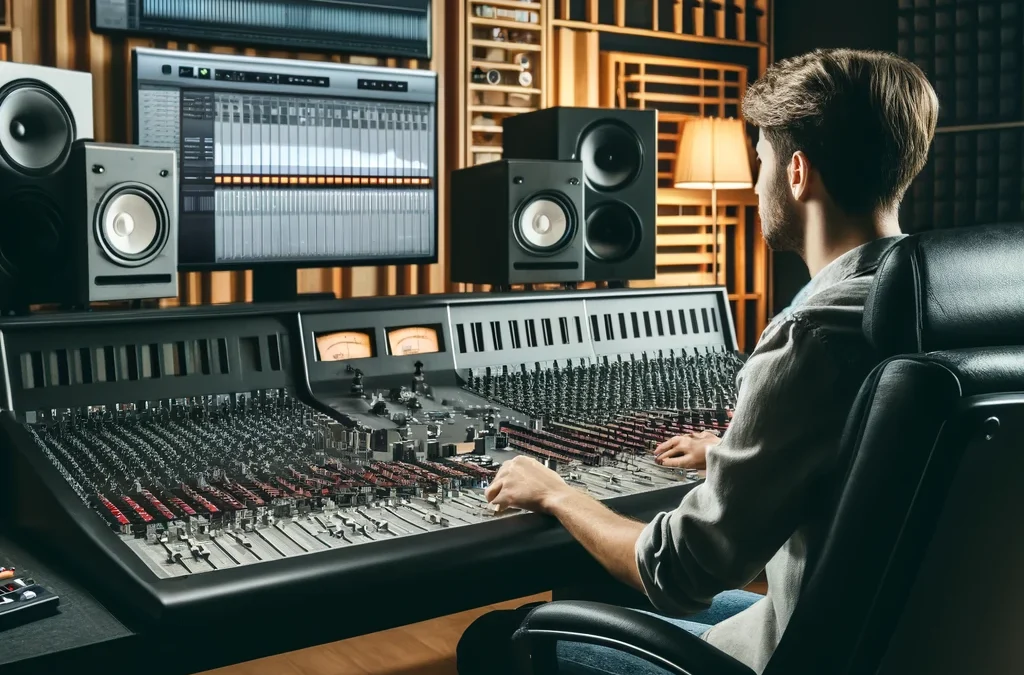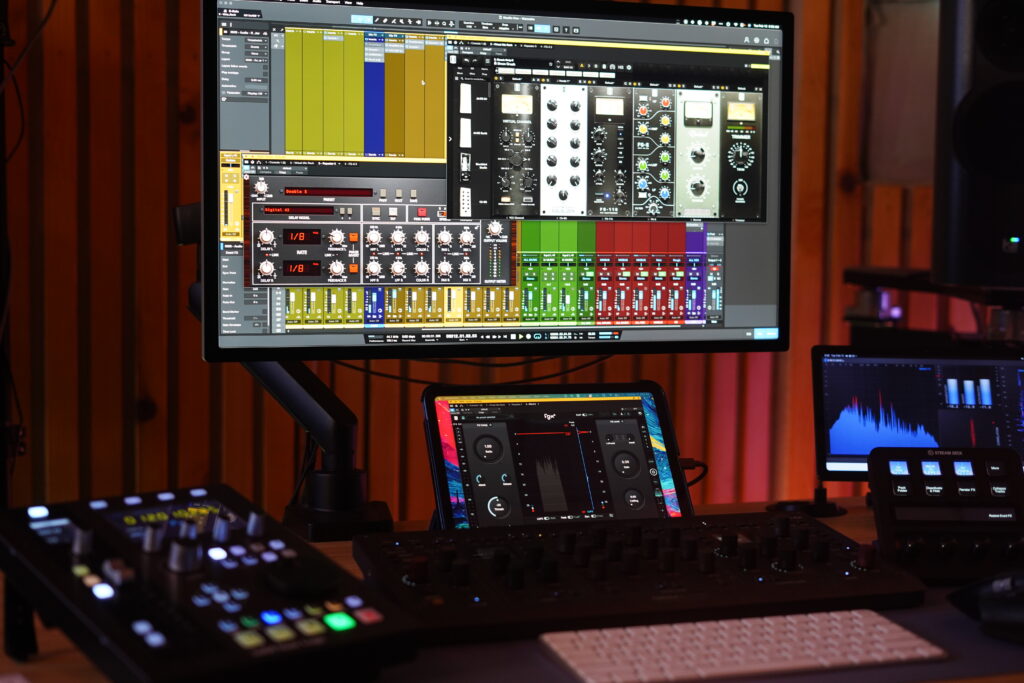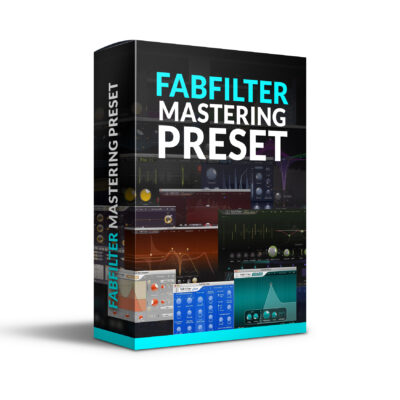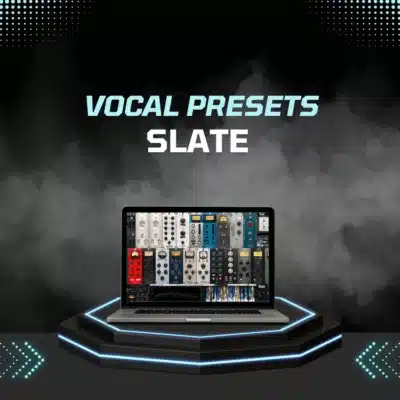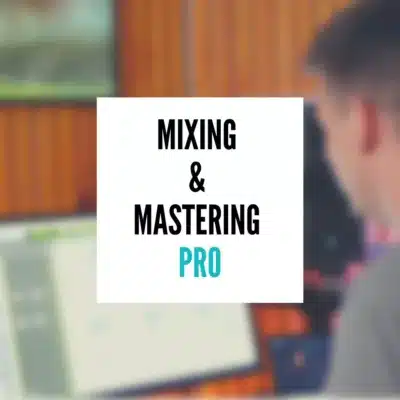Introduction
The Importance of a Mixing Engineer
If you’ve ever listened to a song and thought, “Damn, that sounds massive,” chances are, a great mixing engineer had a lot to do with it. In today’s music world, where listeners are flooded with options and attention spans are short, having a professionally mixed song isn’t just a luxury—it’s a necessity.
I’ve been mixing records for over a decade, and I can tell you firsthand: the difference between a track that connects and one that gets skipped often comes down to the mix. It’s the stage where emotion meets polish, where all the rough edges get smoothed out without losing the soul of the song.
Whether you’re an indie artist recording in a bedroom or a label-backed act cutting tracks in a commercial studio, finding the right mixing engineer can completely change the way people hear your music. In this guide, I’ll break down what mixing engineers actually do, what to look for when hiring one, and how to find the right fit for your sound.
What is a Mixing Engineer?
You might think of a mixing engineer as someone who “just balances levels,” but the role runs way deeper than that. A great mix engineer is part technician, part creative collaborator. Their job is to take the raw ingredients of your song—vocals, drums, synths, guitars, whatever—and make everything sit together in a way that feels intentional and emotionally impactful.
Let’s unpack that with a few examples from real-world mixing sessions:
-
Balancing levels isn’t just about making sure the vocal is loud enough—it’s about making space for it to breathe, so it leads the listener through the track without fighting the snare or the 808.
-
EQ decisions aren’t just about “boosting top end”—they’re about finding where each sound lives in the frequency spectrum and making sure no two elements are stepping on each other.
-
Compression isn’t about crushing everything—it’s about shaping the feel. Want the vocal to sit just right in a chill ballad? That might mean a gentle, slow attack with a soft ratio. Want your chorus to slam? That’s a different approach.
-
Panning gives space. It’s subtle, but the difference between a flat, mono-sounding track and a wide, immersive mix usually comes down to how creatively the stereo field is used.
-
Effects like reverb and delay aren’t just there for vibe—they’re tools to set a mood, create depth, and, when used right, elevate emotion.
At the end of the day, mixing isn’t about fixing problems—it’s about highlighting what’s already great in your track and presenting it in the best possible light.
Why You Need a Professional Mixing Engineer
There’s a big difference between a mix that technically works and one that makes you feel something. If you’ve ever spent hours tweaking a mix and still felt like something was missing—you’re not alone. That’s usually the point where bringing in a mixing engineer changes everything.
Better Sound Quality, Plain and Simple
One of the biggest reasons to hire a pro is this: they know how to make your music sound expensive. Not in a flashy or overproduced way—but in a way that feels finished, cohesive, and confident. A good mix should translate across headphones, laptops, car stereos, and club systems without falling apart. That kind of polish doesn’t happen by accident.
You might already have a clear idea of how you want your music to sound. But translating that vision from your brain into a finished stereo file is another story. That’s where the experience of a professional mixer really shines. They’ve spent years training their ears, understanding how sounds interact, and learning how to get results fast—without losing the vibe.
Here’s what that actually looks like:
-
Clarity: Each instrument has its own space. The vocal is upfront, the kick hits clean, and the low end isn’t muddy.
-
Balance: Nothing’s too loud or too soft unless it’s supposed to be. You’re not riding the volume knob mid-song.
-
Dynamic Control: The song breathes. Big moments hit harder because quiet moments are respected.
-
Stereo Imaging: The track feels wide, deep, and immersive—not like it’s jammed into the middle of your head.
They Help You Realize Your Vision
Mixing isn’t just about fixing—it’s about feeling. A good engineer isn’t there to override your creative vision—they’re there to serve it. If you say you want something warm, nostalgic, and “like a vinyl record from the ’70s,” a good mixer knows what tools and textures to reach for. If you say “I want this to knock like Travis Scott,” they know how to get that modern punch and width.
This is also where trust comes in. You want someone who listens not just to your tracks—but to you. Someone who can take vague artist-speak like “it just doesn’t hit hard enough” and turn that into actionable moves in the mix.
You Save Time, You Save Headspace
Let’s be real—mixing can be a rabbit hole. You tweak one thing, and suddenly you’re five hours deep, second-guessing every EQ move. When you work with a pro, you free up that mental bandwidth. You can focus on writing, performing, or promoting your release instead of getting stuck in the weeds with plug-ins and presets.
And because a seasoned mixer has already made thousands of mixes, they can move fast without cutting corners. They know the common issues, they know how to fix them quickly, and they don’t need to experiment to find the sound—they just know how to get it.
Real Example: What a Pro Can Do
I once worked with an indie artist who had recorded everything at home—vocals in a closet, guitars DI’d straight into a budget interface. The songwriting was great, but the rough mix was muddy and flat. With some smart EQ, a little saturation, and proper vocal automation, we brought the track to life. When the final version dropped, the feedback they got was night and day: radio DJs picked it up, and fans said it sounded huge. Same song. Same performance. Different mix.
Qualities to Look for in a Mixing Engineer
Not all mixing engineers are created equal. Some are great with pop vocals but struggle with live drums. Others can mix a cinematic score but might not know how to make an 808 hit right. So how do you find the right person for your sound?
Whether you’re hiring someone for the first time or looking to upgrade your team, here are the core traits to look out for—beyond just a good-looking website and a few name drops.
1. Technical Chops
Let’s get the obvious out of the way: your mix engineer needs to know what they’re doing behind the board (or mouse). They should be fluent in at least one pro-level DAW like Pro Tools, Logic, or Studio One, and know how to get great results whether they’re working in the box or hybrid with outboard gear.
More importantly, they should understand:
-
Gain staging and signal flow (to keep things clean)
-
EQ moves that carve space without killing tone
-
Compression that controls energy without squashing it
-
Phase relationships, especially in multi-mic setups like drums or live instruments
-
Automation—not just for volume but for emotion
It’s not about flashy gear. It’s about knowing what to do, when to do it, and why.
2. Creative Vision
You’re not hiring a robot. You’re hiring someone with taste. And taste matters.
A solid engineer can technically balance a mix—but a great one brings something extra to the table. Maybe it’s how they automate a background vocal to lift the hook. Or how they use subtle saturation to make a snare feel alive. It’s those little decisions that elevate a track from pretty good to goosebumps.
The best mixers know when to play it safe and when to take risks. They’re part engineer, part artist.
3. Experience That Matches Your Genre
Mixing heavy metal is not the same as mixing trap. Neither is mixing a folk duo or a synthwave instrumental. Every genre has its own language—how the drums should sit, how much low end is acceptable, how much vocal reverb feels “right.”
Look for someone who:
-
Has mixed music in your genre
-
Understands the emotional and sonic expectations of that audience
-
Can show you real examples that resonate with your reference tracks
If you’re doing lo-fi indie pop, and all their credits are EDM festival bangers, it might not be the best fit—no matter how good their resume looks.
4. Proven Track Record
You want someone who’s done this before—and done it well.
Here’s how to vet their experience:
-
Check their discography. Have they mixed stuff you like? Can you hear their touch in it?
-
Ask for before/after samples. Can they show how they took a rough mix and turned it into something release-ready?
-
Read reviews or ask for references. Have other artists had a good experience working with them?
Sometimes even a short list of strong, finished tracks in your style is more valuable than a long resume full of unrelated credits.
5. Communication Skills
This part’s underrated. You’re going to be collaborating with this person—potentially over several weeks or across multiple songs. If they’re slow to respond, vague, or dismissive of your feedback, it doesn’t matter how talented they are. The working relationship won’t click.
Find someone who:
-
Asks questions about your vision
-
Welcomes feedback without ego
-
Can explain their decisions without getting overly technical (unless you want that)
This is a team effort. You need someone who can translate what you’re saying—even if you don’t have the right technical words—into real, musical results.
Where to Find a Mixing Engineer
You’ve written the songs, recorded the vocals, maybe even tracked the band live. Now you need someone to bring it all together. But where do you find that person?
The good news is, between online platforms and music communities, there are more options than ever. The bad news? Sifting through them can be overwhelming. Here’s a breakdown of the best ways to find a mixing engineer—along with what to look out for on each.
Online Platforms
If you’re comfortable hiring someone online, there are a few solid places to start. These platforms give you access to engineers all over the world, across every budget and genre.
SoundBetter
Probably the most well-known platform for mixing and mastering services. It’s owned by Spotify and includes a wide range of vetted engineers. You can browse samples, see credits, and check reviews.
Pros:
-
Curated selection (SoundBetter vets each provider)
-
Clear pricing and turnaround times
-
You can post your project and get multiple offers
Cons:
-
The higher-tier mixers can be pricey
-
Some portfolios feel polished but lack real-world diversity
Mix and Master My Song
Full disclosure—this one’s my site. But I’ve built it specifically to be different from the big platforms. Here, you get a one-on-one experience. No middleman. No algorithm. Just direct communication, fast turnaround, unlimited revisions, and someone who’s invested in making your track sound the best it can.
Why it works:
-
You’re not getting passed off to an assistant
-
Every mix gets the same care whether it’s for a label or a DIY artist
-
You can hear a before/after of my work on the site before even reaching out
Fiverr
Yes, it gets a bad rap—but there are some hidden gems here. If you’re on a tight budget and want to test the waters, this can be an entry point.
Be careful though:
-
Some engineers use AI or templates and crank out mixes without much care
-
Experience levels vary wildly
-
Ask for samples and communicate clearly before booking
Through Your Network
Still one of the best ways to find someone reliable is by word of mouth.
-
Ask musicians you trust. Who mixed their last project? Were they happy with the process and the result?
-
Talk to producers. Many producers have engineers they love working with and can vouch for.
-
Ask your recording studio. If you tracked in a commercial space, they likely have go-to mixers they recommend.
-
Use social media wisely. There are tons of Facebook groups, Discord communities, and subreddits (like r/WeAreTheMusicMakers) where engineers and artists connect every day.
The biggest upside to finding someone through your circle is trust. If someone you respect says “This person killed the mix on my record,” that’s worth more than any flashy portfolio.
Example: Networking in Action
A client of mine—an R&B singer from New York—found me through a recommendation from a rapper I’d worked with a year earlier. She DM’d me with a rough track, we jumped on a call, and by the next week, we had her single finished and released. That intro didn’t come from a paid ad or a platform—it came from someone who got a great result and passed the name along. That kind of trust is hard to fake.
Finding a great mixing engineer isn’t just about hearing good samples—it’s about making sure they get you. The best working relationships in music are built on trust, communication, and aligned expectations.
Here are the key questions I recommend asking—whether you’re reaching out through a platform or messaging someone directly.
1. What’s Your Experience With My Genre?
This might be the most important question to start with. Every genre has its own sonic language. If you’re making alt-pop with ambient textures and layered vocals, you don’t want someone who specializes in metal mixes with hyper-compressed guitars and aggressive drum sounds.
What to listen for in their answer:
-
Do they reference specific artists or projects?
-
Do they sound familiar with your genre’s conventions?
-
Can they point you to mixes they’ve done that vibe like your reference tracks?
If they say, “I can mix anything,” that’s usually a red flag. You want someone who knows your sound and knows how to make it shine.
2. Can I Hear Some Before-and-Afters?
It’s one thing to hear a final product. It’s another to hear what they started with. Good before-and-after samples show you what kind of transformation they’re capable of.
Pro tip: Ask for something close to your style. If you do boom bap and they send you a house remix, that’s not super helpful.
3. What’s Your Process Like?
Everyone has a different workflow. Some engineers are super hands-on and will send updates at each step. Others prefer to do the full mix before you even hear anything.
Ask:
-
How many revisions are included?
-
How do they handle feedback?
-
Do they want notes before they start, or after a first pass?
-
Do they deliver stems or just a stereo mix?
You’re not just buying a mix—you’re buying a process. Make sure it fits how you like to work.
4. What Are Your Rates and Turnaround Times?
Money talk doesn’t have to be awkward. Just be clear.
Ask:
-
How much do you charge per track?
-
Do you offer discounts for EPs or albums?
-
Is mastering included?
-
What’s the typical turnaround?
-
Do you charge extra for revisions?
And if someone’s rate is way lower than everyone else’s, ask why. Good work isn’t always expensive—but great mixers know their worth.
5. What Do You Expect From Me?
A good mixer will probably ask you some questions too—like what you’re going for sonically, who your reference artists are, or if you have notes on vibe or vocal tone.
Make sure you’re on the same page when it comes to:
-
File delivery (stems, tempo info, session files)
-
Track organization (labeled clearly, no weird exports)
-
Reference tracks (with notes on what you like about them)
That way, nobody’s guessing—and the mix turns out closer to what you actually hear in your head.
Example: A Smooth Hiring Conversation
A singer-songwriter recently emailed me asking for help mixing her EP. She attached roughs, a playlist of references, and a short note on how she wanted her vocals to sound—emotional, front-and-center, with a bit of grit.
We hopped on a quick call, I sent her before/afters from similar artists I’d worked with, and we agreed on a timeline and price. It was smooth, transparent, and respectful—and the project turned out great because of it.
Conclusion
If there’s one thing I’ve learned after mixing thousands of songs, it’s this: a great mix doesn’t just make your track sound better—it makes people feel something. That’s the real magic.
A mixing engineer isn’t just someone who cleans up your audio. They’re your creative partner. Someone who can take what you meant to say with your music and make sure it comes through loud and clear—emotionally and sonically.
Whether you’re recording in a professional studio or laying down vocals in a bedroom closet, the right mix can be the bridge between where your song is now and the way you hear it in your head.
So take the time to find someone who understands your sound. Someone who asks the right questions, listens carefully, and wants the mix to be right, not just “done.”
And if you’re ever feeling stuck or unsure, don’t hesitate to reach out. Whether it’s through my site Mix and Master My Song or another trusted engineer, the important thing is that your music gets the treatment it deserves.
FAQs
What exactly does a mixing engineer do?
A mixing engineer takes your recorded tracks—vocals, drums, instruments—and blends them into a balanced, polished, and emotionally impactful mix. That includes adjusting levels, EQ, compression, panning, automation, effects, and anything else needed to bring the song to life.
Why can’t I just mix it myself?
You can! But like anything in music, there’s a difference between getting it done and getting it right. A professional mixing engineer brings trained ears, technical precision, creative perspective, and years of experience—so your mix sounds great everywhere, not just in your headphones.
How do I know if a mixing engineer is good?
Listen to their work. Don’t just look at big names or fancy credits. Ask for before-and-after samples, read reviews, and pay attention to how they communicate. The best engineers are skilled, consistent, and easy to work with.
How much does it cost to hire a mixing engineer?
It varies. Some charge $100–$200 per track, others charge $500 or more depending on experience and demand. I always recommend looking at the value, not just the price. A great mix can take your song to the next level—and that’s worth investing in.
How do remote mixing sessions work?
Pretty simple. You send your properly labeled stems (usually WAVs), share a few reference tracks, and give notes on your vision. The engineer sends you back a mix (usually within a few days), and you give feedback until it’s where you want it. Most mixers, including me, offer unlimited revisions on the first mix to get everything dialed in.
Can the same person mix and master my track?
Yes, though it depends on the engineer. Some offer both services, while others prefer to pass the final mix off to a dedicated mastering engineer for fresh ears. If you’re on a tight budget or deadline, having one person do both can be efficient—but make sure they know how to switch hats properly.

